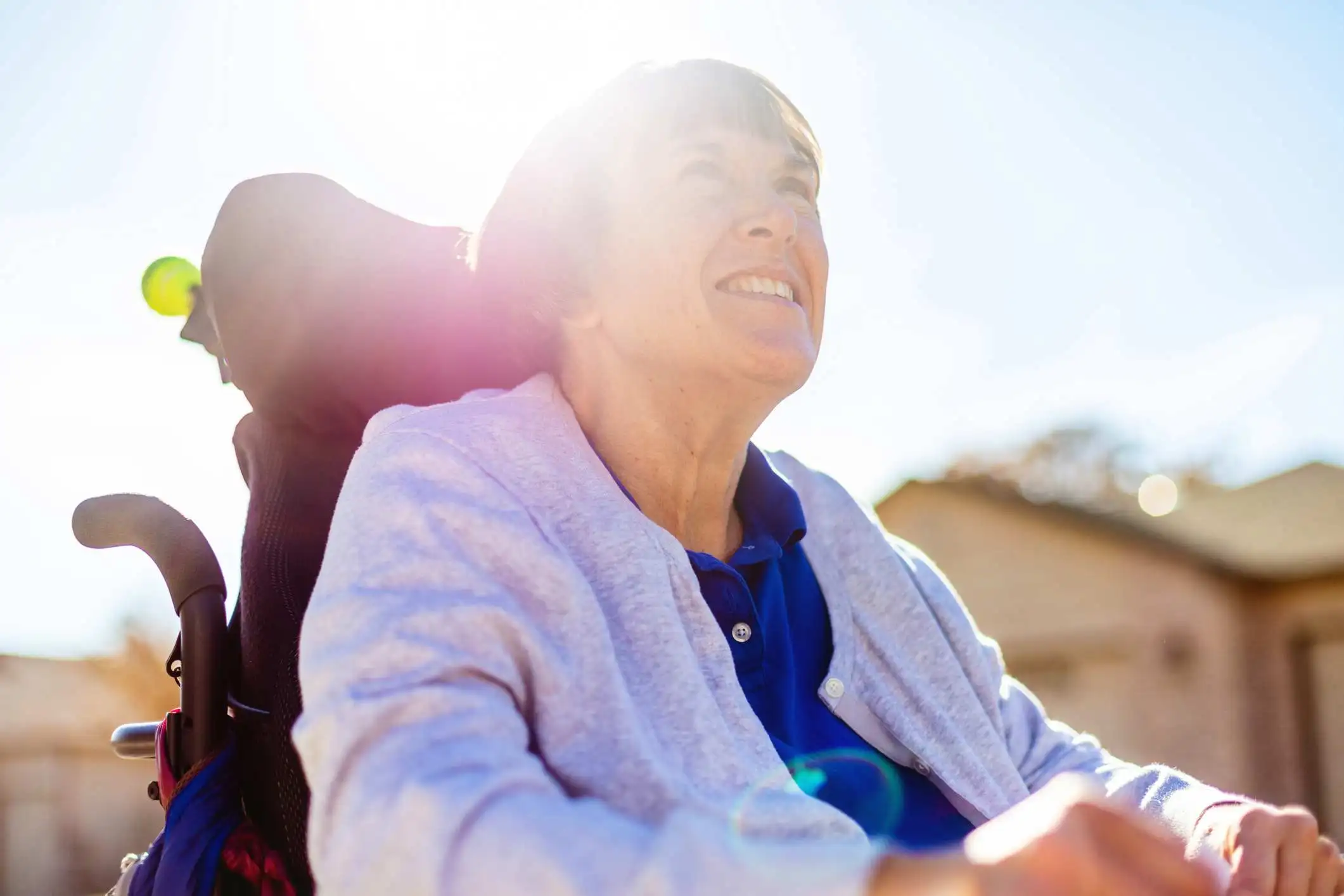Motor neurone disease (MND), also known as amyotrophic lateral sclerosis (ALS) or Lou Gehrig’s disease is a rapidly progressing neurological disease. Although incurable, MND is treatable and many of its symptoms can be managed.
___________________________________________________________
Key Takeaways
Muscle weakness and loss of movement
The earliest sign of motor neurone disease (MND) often includes weakness in the limbs, hands, feet or voice. Over time the affected muscles waste away and movement becomes increasingly challenging.
Muscle tightness and twitching (fasciculations)
People with MND may experience painful muscle stiffness or spasms and visible twitches under the skin—often one of the first symptoms noticed.
Speech and swallowing difficulties
Progressive weakening of mouth and throat muscles can lead to slurred speech, trouble swallowing food or saliva, and increased risk of choking or aspiration.
Breathing problems, fatigue and related pain
As respiratory muscles weaken, breathlessness and fatigue become common. Reduced mobility and stiffness can also cause discomfort or pain, especially later in the disease.
____________________________________________________________________________________________________________________________________________
What is MND?
MND is a disease that affects the nerves that help tell your muscles what to do, which are found in the brain and spinal cord. This means that the messages from the motor neurones gradually stop reaching the muscles, leading to them weakening, stiffen and waste. This will affect how you breathe, eat, drink, swallow, speak, walk and talk. Like any disease, it affects everyone differently and not all symptoms will affect everyone, be in the same order or speed. Due to this, it makes the course of the disease difficult to predict.
Symptoms of MND
Although the disease will progress, its symptoms can be managed to help achieve quality of life. MND often starts with muscle weakness in the face, hands or voice. However, it can start in other parts of the body and progress at varying rates and pattern. Usually, muscles in your mouth, feet and hands are affected first, but not necessarily all at once.
The symptoms of MND are:
Muscle weakness and then the increasing loss of movement in your limbs
This happens as the motor neurones stops delivering instructions to the brain meaning that the muscle is used less. It can also affect balance and posture. This includes numbness, pins and needles, and tingling sensations.
Muscle tightness
Spasticity (muscle tightness) can impact coordination and mobility. This is common and can be very painful.
Fasciculations
You may experience muscle twitching and rippling sensations under your skin. At times, only one part of the body twitches, while other times, several parts can twitch at once. This is often an early symptom.
Breathing problems
This usually develops in the later stages. Depending on your preferences and needs, breathing assistance can be used such as physiotherapy, breathing exercises, medication and assisted ventilation. As your breathing muscles continue to weaken, you may be more dependent on ventilation and medication.
Difficulties with speech
Faint speech happens if you feel like you cannot support the volume of your voice or if you feel breathless. Slurred speech happens with the weakness of the muscles in your mouth, tongue, face or throat.
Swallowing difficulties
You may find that swallowing food, drinking or your saliva starts to cause coughing or gagging become prominent. This happens as your mouth, face and throat weakens.
Extreme tiredness
This typically happens when other MND symptoms are more obvious. Everyday routines will take longer and become more tiring due to the loss of physical function. Fatigue can also occur from breathlessness and less eating and fluid intake.
Pain
Pain can be experienced due to muscle weakness and tightness. Discomfort from limited mobility, swelling or fluid retention.
Managing the symptoms
In most instances, a person would have to have several of the symptoms to be diagnosed. If any 1 of the symptoms appear, it may not be MND as you will have several of them to be diagnosed. Regardless, it is important to speak to your GP if you are concerned.
People living with MND live longer and better when under the care of a multidisciplinary team (MDT) as they receive well rounded care to manage symptoms and remain independent for as long as possible. This can include any of the following health professionals:
- Neurologist
- Consultant
- MND care coordinator
- Occupational therapist
- Physiotherapist
- MND specialist nurse
- Community or district nurse
- Palliative care services
- Wheelchair services
- Speech and language therapists
- Pharmacist
- Dietitian
- Counselling and psychology support
- Social worker
How can Cavendish Homecare help?
At Cavendish Homecare, we are experts in providing motor neurone disease homecare for clients who want to remain in their own homes. When it comes to your health and wellbeing, choosing the right homecare package is of utmost importance and navigating this process can be overwhelming. With Cavendish Homecare by your side, you’ll have the support you need to remain safely at home while enjoying elevated health and wellbeing.
If you would like to enquire about our homecare services, contact us on, 02030085210 or email us at info@cavendishhomecare.com.

About the Author…
Zahrah Abdullah
Operations Coordinator
Zahrah supports the day-to-day operations, combining her management expertise and care experience to keep things running smoothly and ensure the best outcomes for clients. She’s passionate about making a meaningful difference behind the scenes and helping the team deliver exceptional personalised care.
 Back
Back